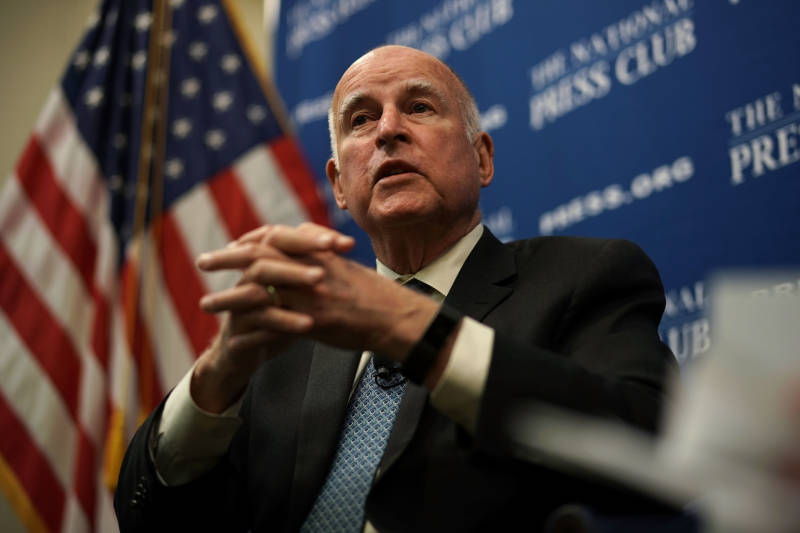"My designs are to use it in some effective way," Brown said coyly, when asked what he will do with that money. "I can't tell you whether that's a local campaign, another ballot measure or even charity -- it could be used for all of that."
But Brown did hint at one potential use for the cash: Pushing back against any attempts to weaken the many criminal justice reforms he has championed and signed into law since 2011. Critics of his policies are mounting a 2020 ballot measure campaign that would undercut elements of Brown's core reforms, which have helped the state slash its prison population by about 34,000 inmates.
"If the criminal justice groups, of which there are many, attempt to unravel (those) and go back to mass incarceration -- which we already still have a fair amount -- I will be able to fight that," he said. "And of course, being a political player, as Jesse Unruh said, 'money is the mother's milk of politics,' so I'll be able to do a lot of nurturing."
Brown -- who has issued a record number of pardons and commutations of sentences over the past eight years -- wouldn't bite when asked about a recent call by a group of former governors for him to pardon all 740 inmates on death row in California. He indicated that he believes voters will eventually do away with the death penalty, which he has long opposed.
Death row, he said, is "not a pleasant place -- but if you look at some of the crimes, they're pretty horrible, too. So that is a very difficult question. When you have cruelty, torture, horror, murder -- what's the response of society? And I do think we can have a more enlightened policy, and I'm trusting that we're going to get there, but we're not getting there overnight."
Brown is expected to issue his final batch of pardons and commutations by Christmas. And he said that there are probably 10,000 inmates in prison facing life without the possibility of parole or serving such long sentences that they will never see a release.
"So that's a group that I want to work at -- that I think I can have some effect on," he said.
Brown offered a mixed assessment of his accomplishments around another signature issue: Climate change.
"I think we did quite a lot. I'd say California has taken more intelligent action on climate change that any state or province in the Western Hemisphere, and more than almost all jurisdictions in the whole world," he said. "Is it enough to stop climate change? No. The world has to do much more, much quicker, and so does California. But we have a blueprint of where to go and we need to step it up -- but that stepping it up requires public support."
He noted there's been staunch political opposition in the U.S. and elsewhere on initiatives like a carbon tax, even as states like California are experiencing wildfire destruction and death that dwarfs anything in recent memory.
"We're on the road to disaster," he said. "These fires didn't happen when I was younger, 20 years ago, and we're going to get more of them. We are going to get more drought, more fires, more destruction. And we better start controlling it. And the difficulty is we're only 1 percent of the problem. The rest of the world is 99 percent. So we have to join with others. ... So there's a lot to do. I want to do more. But it's really climbing up a very tall mountain."
Brown, who served two terms as governor from 1975-1983, said he thinks his final two terms have been "reasonably successful."
"As you age, things look different. You can look back on your life and you learn things, hopefully. So I don't think I've made so many mistakes this time," he said.
Brown said he learned the first time around to work closely with the Legislature -- a task that was much easier in his 70s than in his 30s.
"The first time around I was younger and I had less experience, and a lot of what they were doing was all new to me. Whereas now most of what we're doing is familiar to me and new to them. So that's allowed a more balanced relationship," he said.
He also credited the people around him for any success, saying he believes he's a good judge of character.
"I'd say the people working with me are outstanding, and I learned this -- you don't need a a lot of people, if you have bright, capable, collaborative people -- and that's what I strive for," he said. "And luckily the people who have joined with me are quite exemplary."

